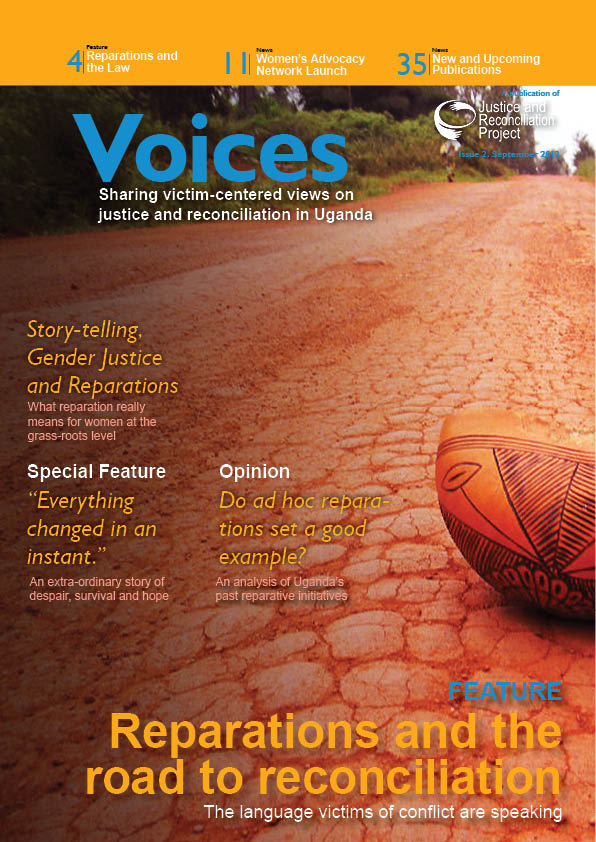By Michael Robinson
It took Stephen about 20 minutes to teach me the proper pronunciation of “ny” and “ng” in Luo. The first time I met Stephen I butchered “what is your name?” in Acholi. “In nyingi anga?” is what I should have said.
It sounded more like, “innyingini Hannah?”
Stephen and all the people from the Justice Reconciliation Project laughed as I continued to struggle with something so basic. “If you just give me 30 minutes to teach you, I’ll have you speaking Acholi,” Stephen shouted across the table.
I took him up on the offer thinking: There’s no way.
Sure enough, 20 minutes into the lesson, we were stuck on “In nyingi anga?” Or as I now had it: “Angagyiniangna?” I thought for sure I had stumped the teacher. Stephen scratched his chin as he contemplated his defeat. “Tomatoes!” he said. “‘Tomato’ in Acholi is ‘Nyanya’ can you say nyanya?”
“Nyanya?” I said, “Nyanya!” I got it. “Ny” became simple (although “ng” still gives me trouble) with the help of Stephen, who volunteered his entire morning to teaching me Acholi and the rest of the afternoon to enduring my chant: NYANYA! NYANYA! NYANYA!
As much as Acholi words escape me, English words could not help me describe how I simply cannot fathom what it would be like to be abducted at age nine, forced to be a soldier at age nine, forced away from my home and into the bush, as a child.
I tried to imagine it from Stephen’s younger brother’s perspective: what if my older brother was taken in the night? What if for three years, he was held captive away from me and forced to commit crimes against his own people? Would I consider him my enemy? Would I think about him every night and wish beyond all measure for his safe return?
It is heartbreaking and nearly impossible for me to fully comprehend.
Before I arrived in Uganda, I had done a fair amount of studies regarding the recent conflict, yet nothing was making it real to me. I found myself falling into this strange paradox of knowing about the conflict, being informed about the terror involved in the two-decade long war, and being aware of the struggles of post-conflict rebuilding, but of not really making the connection that there are people my age, people older than me, even people younger than me who are actually here, available to teach me Acholi and eager to share their experiences. These people have endured the conflict, persevered through the terror and are struggling in the post-conflict stage.
It was truly a personal breakthrough in my academic studies, not to mention my personal outlook on life, to simply meet those involved with JRP. It was an honour to see their work, and realise just how important it is.
Stephen and those at JRP taught me more than just “nyanya!” they have taught me how to look past the words on a page and see the beautiful, intelligent and brave people who have been adversely affected by conflict. But not just to see them or empathise with them, but struggle with them in hopes of a better future for all Ugandans.▪

